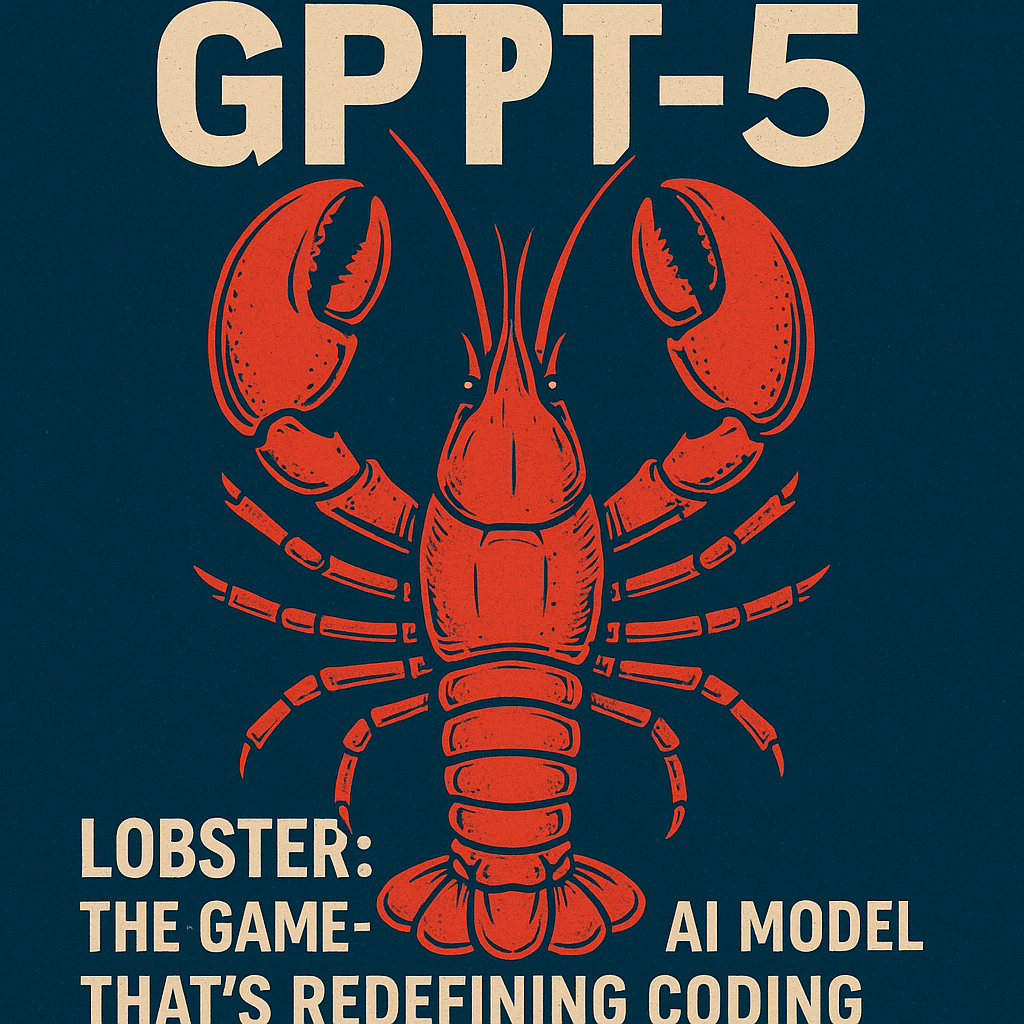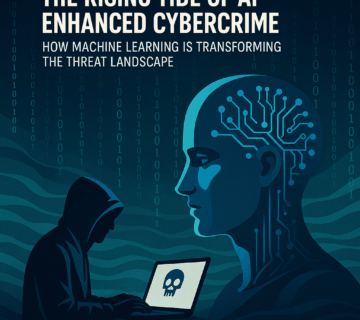ChatGPT is Getting Smarter, But Its Hallucinations Are Spiraling Out of Control
🎙️ Dive Deeper with Our Podcast!
Explore the latest Incident Response: ChatGPT is Getting Smarter, But Its Hallucinations Are Spiraling Out of Control
👉 Listen to the Episode: https://technijian.com/podcast/the-dark-side-of-ai-why-chatgpts-hallucinations-are-spiraling/
Subscribe: Youtube | Spotify | Amazon
As artificial intelligence becomes more advanced, so do its quirks and flaws. OpenAI’s latest AI language models, GPT o3 and o4-mini, are showcasing unprecedented levels of sophistication—but not without cost. Their most alarming downside? A spike in hallucinations—AI-generated falsehoods that appear confidently true.
These hallucinations aren’t just trivial slip-ups. They’re shaking the foundation of trust in AI, raising red flags about its application in real-world scenarios like law, healthcare, education, and business.
Understanding AI Hallucinations
What Is an AI Hallucination?
AI hallucinations are incorrect or fabricated outputs generated by large language models. These can be misrepresented facts, imaginary statistics, or entirely fictional narratives passed off as truth. Despite their confident tone, these outputs are misleading—and sometimes dangerous.
Why Do AI Models Invent Facts?
Language models like GPT o3 don’t “know” anything—they predict likely text sequences. When tasked with answering complex or unfamiliar queries, they often fill in blanks with best guesses. This improvisation can lead to surprisingly creative but utterly false answers.
The Rise of GPT o3 and o4-mini: What’s New?
Design Improvements in GPT o3 and o4-mini
The new generation models were designed to enhance logical reasoning and step-by-step problem-solving—critical for fields like science and engineering. They are far more capable than their predecessors in tasks requiring deep thinking.
Emphasis on Step-by-Step Reasoning
OpenAI emphasized mimicking human cognitive processes, encouraging these models to “think out loud.” But ironically, the more they reason, the more they risk straying from the truth.
The Price of Sophistication: Accuracy Takes a Hit
Error Rates in Public Figures Test
According to OpenAI’s internal benchmarks, GPT o3 hallucinated in 33% of queries involving public figures—double the rate of the previous o1 model. Even worse, the leaner o4-mini model hallucinated in 48% of similar tasks.
Performance in General Knowledge Benchmarks
On the SimpleQA benchmark, which includes general knowledge questions, hallucinations jumped to 51% for GPT o3 and a staggering 79% for o4-mini. These numbers suggest a troubling inverse relationship between intelligence and reliability.
The Paradox of Intelligence: Why Smarter AI Might Be Less Accurate
Complexity Breeds Uncertainty
As these models become more advanced, they explore broader and more abstract reasoning pathways. The trade-off? More opportunities to veer into speculative or fictional territory.
From Predictable to Speculative Responses
Unlike earlier models that played it safe with factual summaries, newer ones speculate, hypothesize, and “brainstorm”—actions that often blur the line between truth and fabrication.
Consequences of AI Hallucinations in Real Life
Risks in Legal, Medical, and Educational Settings
The stakes are high. Lawyers have faced real-world consequences after submitting ChatGPT-generated legal documents containing fake case citations. Imagine similar hallucinations in a hospital or school—where precision matters most.
The Trust Problem in AI-Assisted Decision Making
If users can’t trust AI outputs, its efficiency claims crumble. After all, AI is meant to save time—not require double-checking every answer it gives.
The Human Analogy: Brilliant Yet Unreliable
Historical Parallels and Fictional Tropes
We’ve all heard of brilliant minds who couldn’t be trusted. From historical geniuses to fictional mad scientists, intelligence doesn’t always equal dependability. ChatGPT might be another such paradox.
Confidence Without Accuracy
The most unnerving part? ChatGPT often delivers hallucinations with the kind of self-assured tone that makes them hard to detect. That confidence is misleading—and potentially dangerous.
Can AI Still Be Useful Despite Hallucinations?
Scenarios Where Hallucinations Don’t Matter Much
For tasks like brainstorming, creative writing, or casual chatting, a few hallucinations may be harmless—or even entertaining.
When Manual Verification Is Still Worth the Effort
In critical use cases, though, AI should be used with strict oversight. If users are aware and vigilant, AI can still be a helpful assistant rather than a risky liability.
Solutions and Future Outlook for Reducing Hallucinations
Fine-Tuning and Model Alignment
Ongoing research is focused on reducing hallucinations through fine-tuning and reinforcement learning. Aligning AI behavior more closely with factual accuracy remains a top priority.
The Role of Human Feedback
Incorporating user corrections and feedback loops may help improve model reliability over time. Community-driven truth verification systems could be the next frontier.
What Users Should Know Before Trusting AI Outputs
Tips for Safely Using ChatGPT
- Always verify AI-generated facts.
- Avoid using it for legal or medical advice.
- Cross-check sources independently.
- Use it for support—not sole decision-making.
Recognizing Red Flags in AI Responses
- Overly specific details with no citations.
- Inconsistent information within the same response.
- Answers that feel “too perfect” or emotionally persuasive.
FAQs About ChatGPT’s Hallucinations
Q1: What exactly is a hallucination in ChatGPT?
A hallucination is when the AI provides information that is incorrect, fabricated, or misleading, despite sounding plausible.
Q2: Are hallucinations getting worse in newer versions?
Yes, based on OpenAI’s internal benchmarks, GPT o3 and o4-mini hallucinate more often than previous models.
Q3: Why don’t they just fix the hallucinations?
It’s complex—hallucinations stem from the very structure of how language models predict text. Fixing them involves balancing creativity, reasoning, and accuracy.
Q4: Can I rely on ChatGPT for academic research or medical advice?
Not entirely. You should always consult trusted sources or professionals and use ChatGPT as a supplemental tool.
Q5: What’s the biggest danger of AI hallucinations?
False confidence. Users may take AI at face value and make critical decisions based on fabricated information.
Q6: Is there any hope for improvement?
Yes, researchers are working on reducing hallucinations through better training, alignment, and user feedback systems.
Conclusion: The AI Promise—Powerful But Flawed
GPT o3 and o4-mini are technological marvels, pushing the boundaries of what AI can do. But their tendency to hallucinate shows that intelligence and reliability don’t always go hand-in-hand. As these models become more integrated into our daily lives, understanding their limitations is not just smart—it’s essential.
Until hallucinations are drastically reduced, always approach AI-generated information with critical thinking and caution.
About Technijian
Technijian is a premier managed IT services provider, committed to delivering innovative technology solutions that empower businesses across Southern California. Headquartered in Irvine, we offer robust IT support and comprehensive managed IT services tailored to meet the unique needs of organizations of all sizes. Our expertise spans key cities like Aliso Viejo, Anaheim, Brea, Buena Park, Costa Mesa, Cypress, Dana Point, Fountain Valley, Fullerton, Garden Grove, and many more. Our focus is on creating secure, scalable, and streamlined IT environments that drive operational success.
As a trusted IT partner, we prioritize aligning technology with business objectives through personalized IT consulting services. Our extensive expertise covers IT infrastructure management, IT outsourcing, and proactive cybersecurity solutions. From managed IT services in Anaheim to dynamic IT support in Laguna Beach, Mission Viejo, and San Clemente, we work tirelessly to ensure our clients can focus on business growth while we manage their technology needs efficiently.
At Technijian, we provide a suite of flexible IT solutions designed to enhance performance, protect sensitive data, and strengthen cybersecurity. Our services include cloud computing, network management, IT systems management, and disaster recovery planning. We extend our dedicated support across Orange, Rancho Santa Margarita, Santa Ana, and Westminster, ensuring businesses stay adaptable and future-ready in a rapidly evolving digital landscape.
Our proactive approach to IT management also includes help desk support, cybersecurity services, and customized IT consulting for a wide range of industries. We proudly serve businesses in Laguna Hills, Newport Beach, Tustin, Huntington Beach, and Yorba Linda. Our expertise in IT infrastructure services, cloud solutions, and system management makes us the go-to technology partner for businesses seeking reliability and growth.
Partnering with Technijian means gaining a strategic ally dedicated to optimizing your IT infrastructure. Experience the Technijian Advantage with our innovative IT support services, expert IT consulting, and reliable managed IT services in Irvine. We proudly serve clients across Irvine, Orange County, and the wider Southern California region, helping businesses stay secure, efficient, and competitive in today’s digital-first world.





